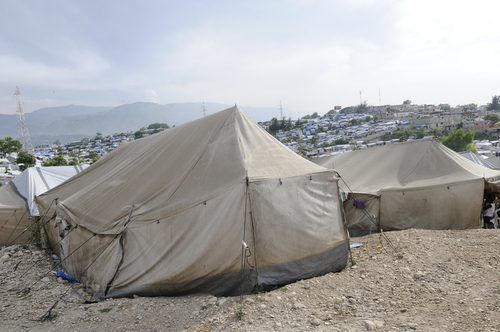November 30, 2015 | Industry Insights
European Supply Chain Affected by Influx of Refugees, Tighter Border Controls

The human tragedy unfolding in the Middle East has seen hundreds of thousands of Syrian refugees fleeing their country between January and September, making their way through Turkey onto Greece in the hopes of settling in Germany and other countries as Europe opened their borders and streamlined the process earlier this year. In addition, even more refugees have made their way into Europe from Iraq fleeing ISIS as well as from war-torn countries such as Afghanistan, Eritrea and Sudan. This crisis has now escalated to the point that many European governments are reinstating tighter border controls, which has not only exacerbated an already desperate humanitarian situation but is also impacting Europe’s supply chain with delays and higher rates.
In fact, in Business Insider, Cora Buegenburg, operations manager at German-owned transport company Allgeier Translog, cited the delays the company’s trucks and that of the industry in general are experiencing at the European borders. Hungary, for example, has closed its borders to Serbia and Croatia, and built a 41-mile barbed-wire fence along the Croatian border. Austria, Germany, and Slovakia have imposed border checks resulting in delays for haulers, and Poland and the Netherlands are considering doing the same. These delays are occurring on the heels when increased trade and a driver shortage have already strained capacity for European trucking companies. With capacity already near its limit, haulage companies are forced to raise their rates to compensate, noted Inbound Logistics in a recent article.
Trucking companies have been sounding the call for some time that they were being caught up in Europe’s migrant crisis with business increasingly disrupted by lengthy traffic jams at border checks and stowaways. They also worried governments will step up border controls. In an article in Reuters earlier in September truckers said that “if a border-free zone within Europe were to disintegrate or be scrapped, it would call into question not only the road haulage industry’s own, time-sensitive business model but the supply chains of industries across the continent.”
One company, DSV, the third largest road freight operator in Europe with more than 17,000 trucks on the roads every day, was cited in the Reuters article: “If they start to stop all the trucks it will be costly for everyone and the bill will be passed on to customers and in the end, goods will be more expensive,” said Soren Schmidt, head of DSV Road.
In addition, in a more recent statement, Sebastiaan Scholte, CEO of Jan de Rijk Logistics, said, “In an industry with very thin margins, these additional costs are not sustainable in the long run.” According to an article in Inbound Logistics on this very issue, Jan de Rijk and many other carriers are now passing additional waiting time fees to their shipper customers.
The air shipping industry in the meantime is stepping up to try and fill the demand and help shippers avert costly supply chain disruptions. Time-critical logistics providers are expanding their available capacity through new charter relationships and additional equipment, so that shippers who can’t afford for their cargo to wait in border lines will still be able to get their cargo to its destination on time, cited Inbound Logistics.
Of course, finding a solution to the humanitarian needs of refugees is a priority. At the same time, shippers and providers are looking to European legislators to also address the secondary consequences of border closings and delays and the impact it is having on the supply chain and the continent’s ability to maintain its global trade competitiveness.
Roanoke Insurance Group will continue to keep you up to date on the crisis and its affect on the global logistics industry. For more information about our insurance and bond products and service, please feel free to call us at 1-800-ROANOKE (800-762-6653).
Sources: Inbound Logistics, Reuters













